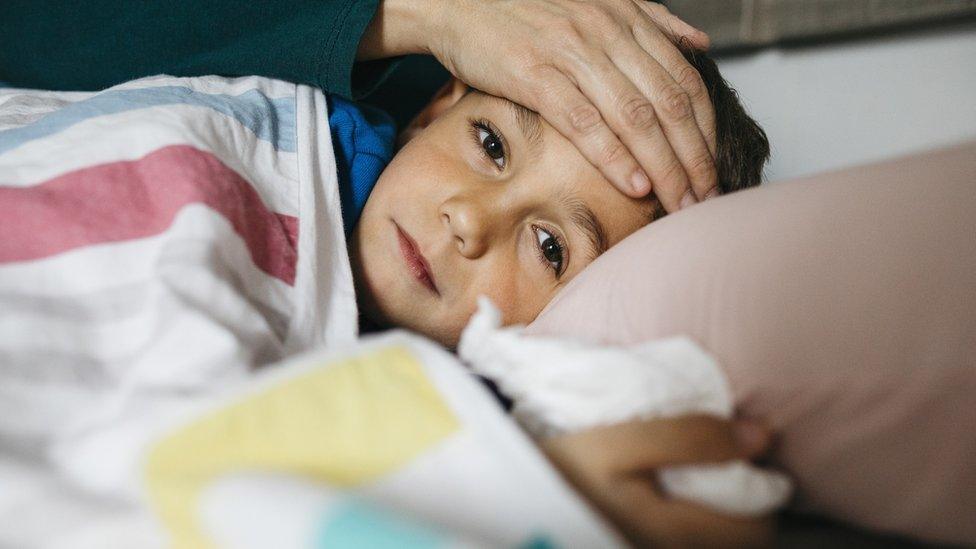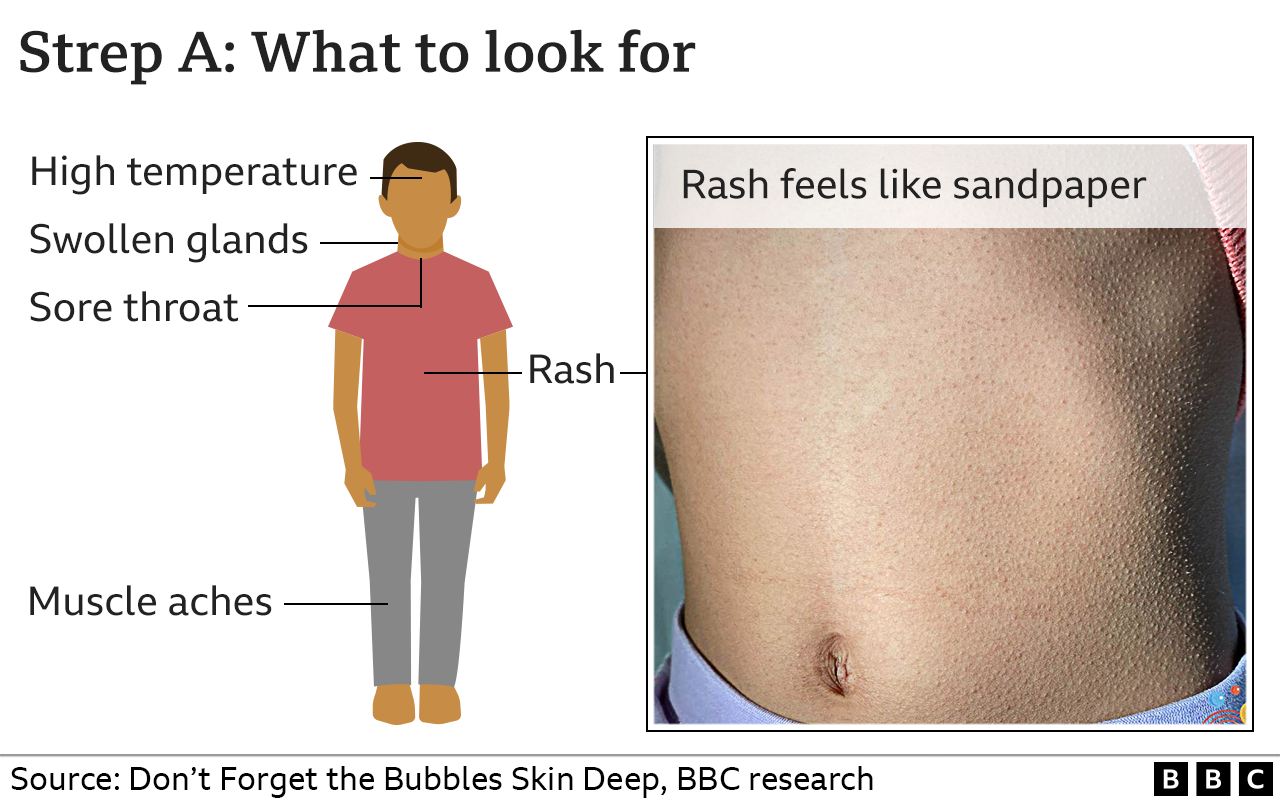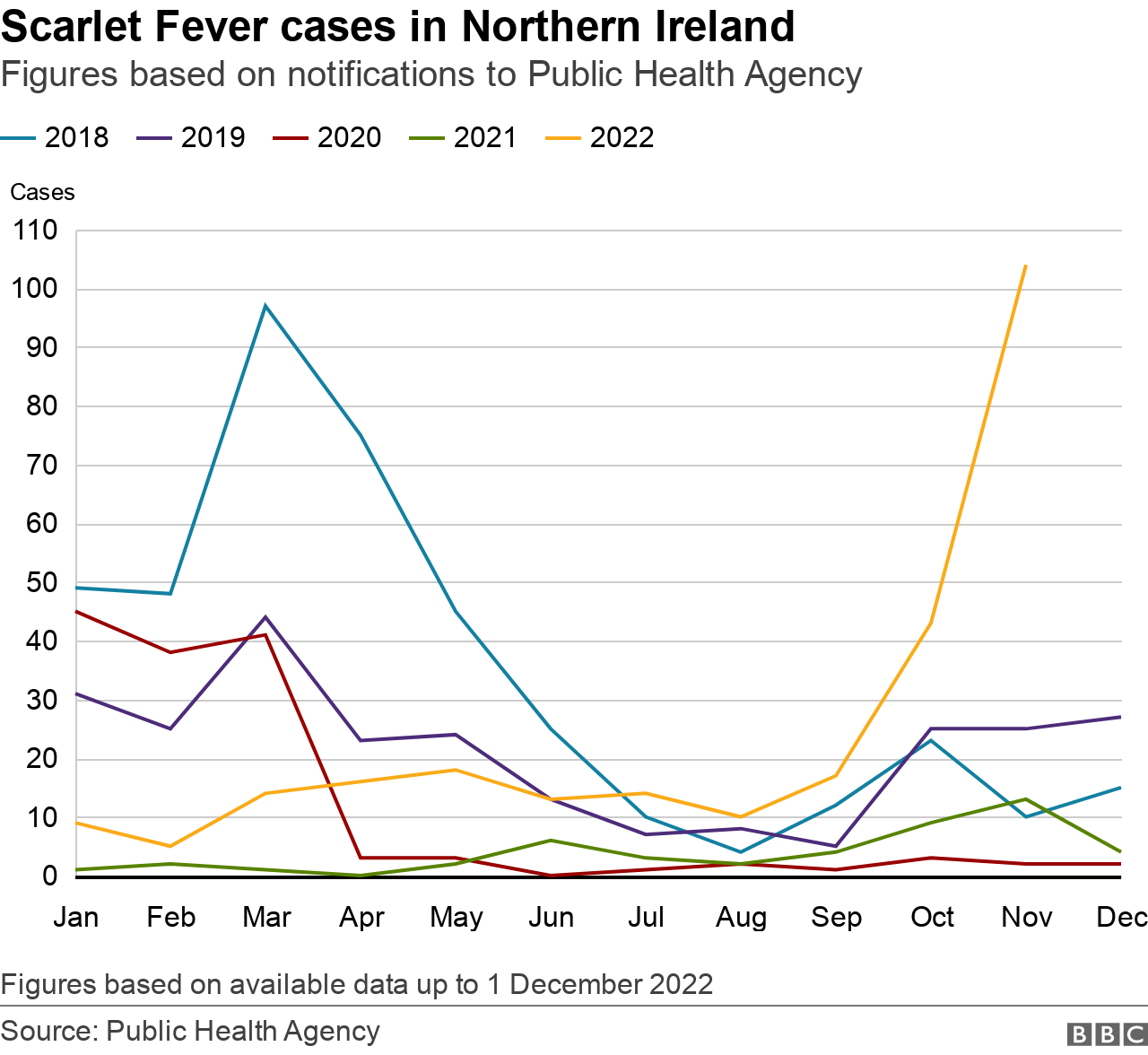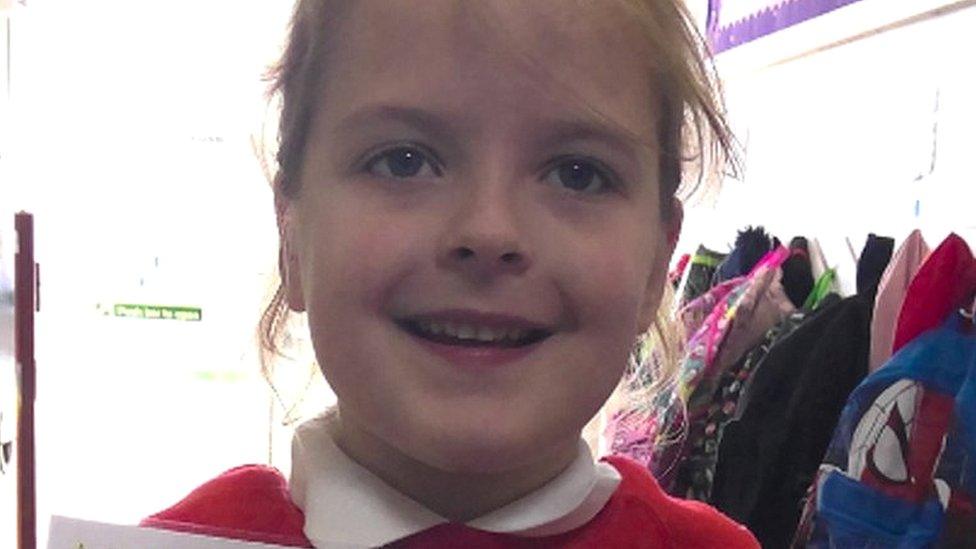Strep A cases could level off within weeks, paediatrician says
- Published

Cases of strep A in Northern Ireland are expected to level off within weeks, a leading paediatrician has said.
Dr Ray Nethercott said it was difficult to be precise but that there could be a "settling" or drop in infections.
On Wednesday a record 227 children attended the Royal Belfast Hospital for Sick Children, although it is not clear how many had strep A.
But it is understood that more children with respiratory syncytial virus (RSV) and flu are being cared for on wards.
All routine procedures have been postponed due to pressures caused by a rise in bacterial and viral infections.
"This is an infection that [normally] starts in early spring time, it peaks after several weeks and then settles down again," Dr Nethercott told BBC News NI's Good Morning Ulster programme.
"It's really difficult to be precise, but I would be expecting that we will see this infection settle over the space of another few weeks."
The Northern Ireland officer for the Royal College of Paediatrics and Child Health said infections would begin to level off once children who had not yet been exposed to the infection developed antibodies and natural defences.
System at breaking point
He also urged parents to remain vigilant and consult the Belfast Trust's online symptom checker, external if they were concerned about their child.
Dr Nethercott added that while there was a marked increase in infections generally, the message for parents was one of reassurance.
"We are really keen to convey to parents that for the very vast majority of children this will be a mild infection that is unlikely to have very serious or tragic consequences."
Another senior doctor said the healthcare system had already been under pressure but the spike in illness meant it was struggling to cope.
Chairperson of the Royal College of GPs Northern Ireland Council, Dr Ursula Mason, acknowledged parents were having to be persistent to obtain GP appointments, but added: "This is a system at breaking point and we are doing all we can with the capacity that we have in general practice."
What is Strep A?
Most strep A infections are mild - a sore throat or a skin infection that can be easily treated with antibiotics.
But some people who catch it can get very sick.

Some people develop scarlet fever, which causes a skin rash (that feels like sandpaper) and flu-like symptoms, including a high temperature.
Figures show there were at least 104 cases of scarlet fever in Northern Ireland in November, external, up from 43 in October.
Very rarely, Strep A can cause something called invasive group A streptococcal infection or iGAS, which can be deadly.
Invasive disease happens when the bacteria get past your body's immune defences.
Since September, 15 UK children have died after invasive strep A infections, including Stella-Lily McCorkindale from Belfast.
The government said that during a similar period in 2017-18, external - the last high season for iGAS infection - there were four deaths in England.
But the number of cases of iGAS - the most serious form of infection - is 33 so far in 2022, compared to 55 in 2018 and 72 in 2019 (before the pandemic).
The Public Health Agency said there was no indication Northern Ireland was seeing more deaths from iGAS than in previous years.


What should parents do?
As a parent, if you feel that your child seems seriously unwell, you should trust your own judgement. Contact your GP if:
your child is getting worse
your child is feeding or eating much less than normal
your child has had a dry nappy for 12 hours or more or shows other signs of dehydration
your baby is under three months old and has a temperature of 38°C, or is older than three months and has a temperature of 39°C or higher
your baby feels hotter than usual when you touch their back or chest, or feels sweaty
your child is very tired or irritable
Call 999 or go to A&E if:
your child is having difficulty breathing - you may notice grunting noises or their tummy sucking under their ribs
there are pauses when your child breathes
your child's skin, tongue or lips are blue
your child is floppy and will not wake up or stay awake
Related topics
- Published8 December 2022

- Published9 December 2022

- Published7 December 2022

- Published15 December 2022
